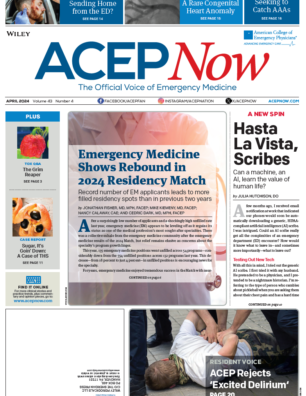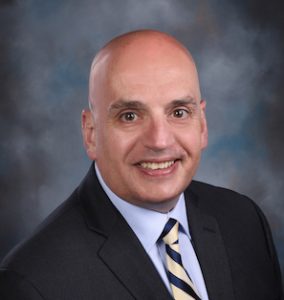The nature of Medicaid being a shared-responsibility program between the federal government and the states makes any repeal of the ACA more complicated than the repeal of the health care exchanges. Given that some states opted not to participate in Medicaid expansion, there has been an unequal effect of the ACA in those states that chose to participate versus those that did not. Since the implementation of the ACA, 37 states are participating in 1,115 demonstrations or waiver projects, providing flexibility in a number of areas of the Medicaid program, including provider incentives for state-specific performance goals.
Explore This Issue
ACEP Now: Vol 36 – No 03 – March 2017All the Other Stuff
Although the Medicare Access and CHIP Reauthorization Act of 2015 replacement for the flawed sustainable growth rate payment formula received bipartisan support and is unlikely to be repealed, many of the secondary programs that are part of the big picture of payment reform will be subject to revision or replacement. Accountable care organizations, Medicare shared savings programs, and the Center for Medicaid & Medicare Innovation Center could all go away.
Historically, newly inaugurated presidents get some degree of cooperation by the opposing party during a “honeymoon” period, especially when the president’s party controls both houses of Congress. That is clearly not going to happen this year. The Democrats have already taken a very hard line in opposition to the president, as demonstrated by their refusal to vote for or even attend committee hearings for some cabinet nominees. The president has not softened his “campaign tone” and continues to push hard on controversial issues such as the immigration/travel ban. What the replacement of the ACA will look like and how it will affect emergency medicine will be interesting for all of us and will play out within the next few months.
Pages: 1 2 3 | Single Page






One Response to “How Will the 115th Congress Impact Emergency Medicine?”
March 21, 2017
PAUL F ROBINSONDr Cirillo’s article is a very thorough description of the current state of affairs regarding the PPACA(Obamacare) and the AHCA(Ryancare).
However, he does not comment on the economic reasons driving the AHCA.
Cutting and capping Medicaid has nothing to do with “repeal and replace.” Yet, gutting
Medicaid seems to be the main purpose of this enterprise. As written, the AHCA will cut $880 billion of federal payments to the states, over 10 years, in order to provide huge tax breaks for the wealthy and provide corporate welfare to insurance companies and medical device manufacturers.
Paul F. Robinson MD, PhD, FACEP
Copello Fellow, National Physicians’ Alliance